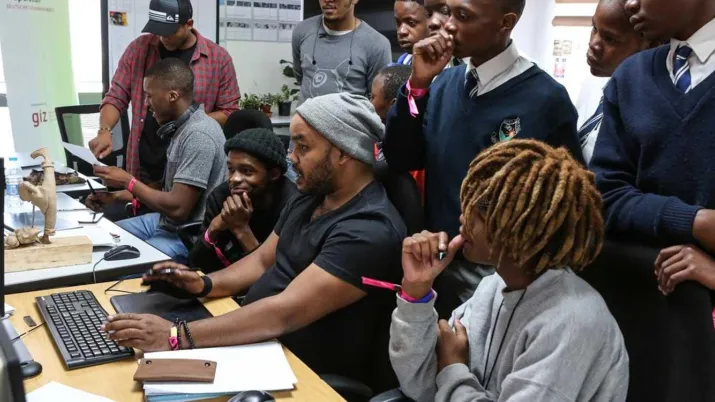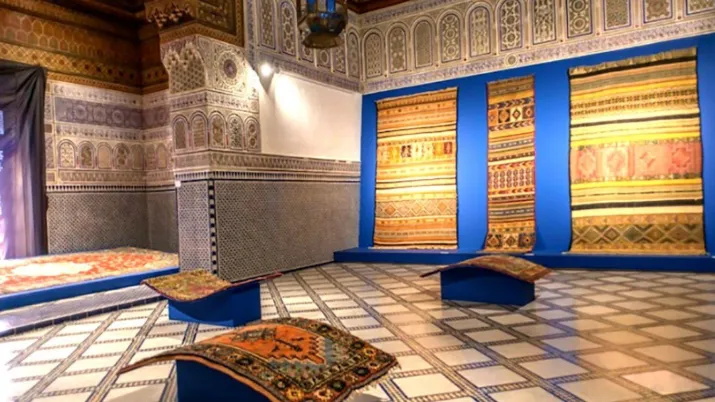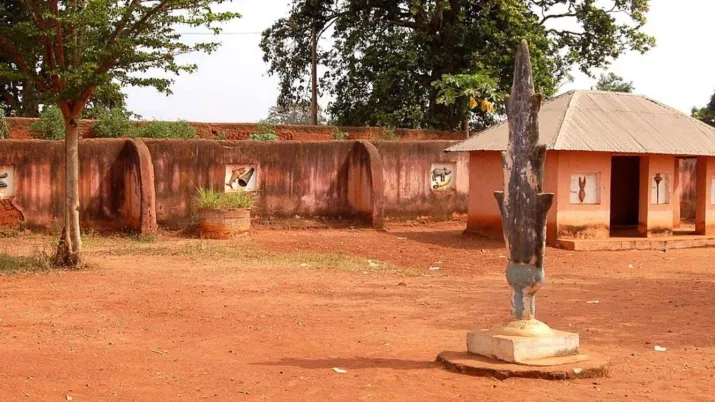Share the page
Cultural and Creative Industries

Our commitment
The cultural and creative industries (CCIs) are sectors whose main purpose is the creation, development, production, reproduction, promotion, distribution, or commercialization of goods, services, and activities with cultural, artistic, and/or heritage content. This includes, for example, film, video games, publishing, music, fashion, painting, and historical sites.
As inclusive and unifying forces, CCIs contribute to achieving the Sustainable Development Goals (SDGs) – in particular by generating employment, fostering innovation, supporting education, promoting gender equality, driving economic growth, and advancing peace.
Guided by this strong conviction, and in a context marked by unprecedented challenges – especially for young people – AFD Group supports CCIs as drivers of inclusive investment and sustainable impact.
Our approach
Behind a festival, a television series, or a museum visit lie entire value chains whose structure is essential for cultural and creative industries (CCIs) to thrive, create jobs, and drive growth.
Beyond their economic potential, CCIs strengthen social cohesion – and AFD Group has made access to culture for all a key part of its Social Link roadmap. CCIs also help foster more collaborative relationships between France and AFD’s partner countries.
AFD’s engagement in the CCI sector is built around four strategic priorities: cultural policies and governance (axis 1); cultural infrastructure and equipment (axis 2); training for cultural professions (axis 3); and cultural entrepreneurship (axis 4). AFD’s subsidiaries – Expertise France and Proparco – are also involved in supporting CCIs.
AFD engages in policy dialogue with its partners to maximize the structural impact of development projects in the CCI sector. It aims to support cultural public policies that are ambitious, accessible, inclusive, and redistributive.
This includes promoting the development of CCI value chains through the implementation of high-quality and protective regulatory frameworks – for example, in areas such as copyright, intellectual property, artist status, and tax regulation – that foster innovation, creativity, and investment.
Another key priority is to ensure that cultural offerings are inclusive and accessible – such as through accessible cultural centers – to promote professional development mechanisms (e.g. by ensuring gender equality in training, entrepreneurship, and access to finance), and to guarantee fair income distribution throughout the value chain.
Example: In Benin, since 2024, AFD has provided €60 million in budget support for the country’s public cultural policy (including €55 million in loans). This financing supports the strengthening of public sector governance for the implementation of Benin’s cultural policy, the structuring and professionalization of the cultural ecosystem, and improved access to, promotion of, and participation in culture.
Access to high-quality cultural infrastructure creates a virtuous cycle that improves cultural access for local communities. When these spaces are managed in inclusive and participatory ways, they foster social cohesion, youth education, and civic engagement.
Such infrastructure also stimulates creativity and enhances the attractiveness of territories – with positive impacts on tourism and the local economy more broadly.
When it comes to heritage promotion specifically, AFD-financed projects also contribute to post-colonial transformation processes and the construction of a new shared narrative. This includes restoring shared histories, engaging in remembrance work, and fostering stronger cultural cooperation with African countries – particularly in the context of art restitution initiatives.
Examples:
- Local cultural infrastructure: In Haiti, the Tanbou project, supported by AFD since 2021, aims to generate income in the CCI sector and rebuild social ties through the creation of La Fabrique des Arts – a fixed and mobile cultural space that is autonomous, productive, and sustainable.
- Heritage infrastructure: Since 2020, as part of the urban and heritage regeneration project at the Lahore Fort and its surroundings in Pakistan, AFD has supported the establishment of an interpretation center on the site's history and culture.
- Museum infrastructure: Since 2019, AFD has been supporting the modernization of the National Museum of Cameroon in Yaoundé.
The development of creative value chains requires the professionalization of sector stakeholders – in cultural management, the operation of cultural facilities, and technical cultural professions such as performing arts, audiovisual production, and heritage conservation.
AFD works to support the development of sustainable training programs that promote professional integration.
Technical support and capacity building for sector actors are key levers for the sustainable growth of cultural and creative industries. This component is embedded in all AFD-financed CCI projects.
Example: Under a European Union fund delegation, AFD has been financing a project in Senegal since 2023 to establish a high-quality, sustainable professional training offer in the audiovisual and performing arts sectors. The objective is to improve youth employability. The project also aims to strengthen the pedagogical and economic models of training centers and foster public–private collaboration in the sector.
Cultural entrepreneurship – driven by digital technology, which has transformed how culture is produced, distributed, and consumed – still faces significant barriers to accessing finance.
Yet it contributes to economic growth, employment, and social inclusion, while enabling the emergence of new cultural products that benefit local populations.
To support cultural entrepreneurship, AFD backs mechanisms that provide direct support to entrepreneurs in the sector, while also encouraging banks and investment funds to engage in this field.
Example: Since 2019, AFD has financed the Afrique Créative program. Operated by a consortium led by Africalia and supported by local incubators, this incubation scheme aims to support cultural and creative entrepreneurship across the African continent. Winners – selected through a call for proposals – receive technical and financial support over 12 months to help scale up their activities.
Since 2018, AFD has been conducting research and mapping work on cultural and creative industries (CCIs) to demonstrate their economic and social impact. It published a report titled Panorama des ICC in 2018, highlighting the economic potential of CCIs across different world regions. This study was updated in February 2025 with a new strategic report – Etude stratégique sur le secteur des ICC (in French) – produced by BearingPoint.
AFD has also published (in French) a research paper titled Communautés imaginées, imaginaires politiques Les industries culturelles africaines au prisme des transformations numériques ("Imagined Communities, Political Imaginaries: African CCIs through the Lens of Digital Transformation"), written by a group of African and European researchers. The study explores the social impact of CCIs and their role in shaping communities and nations. In addition, AFD led the production of an advocacy booklet aimed at mobilizing greater financial engagement: What's next for investment in the African cultural and creative industries?
Through these various publications, AFD seeks to shift perceptions of risk in the CCI sector, with the aim of encouraging both public and private investment – whether local or international. At the 4th Finance in Common Summit (FiCS) in 2023, AFD signed a Joint Statement of Interest titled Culture, Arts and Development with several public development banks, initiating joint work in 2024. This effort continued at the FiCS held in South Africa in late February 2025.
AFD also finances new CCI projects through Team Europe Initiatives. Together with the European Union, it is supporting a pan-European and pan-African museum cooperation project aimed at expanding exchanges and training between professionals from both continents – and fostering new networks and partnerships between professionals in France and across the African continent.
AFD promotes French expertise and the CCI sector in coordination with other members of Team France – including the French Ministry for Europe and Foreign Affairs, the Ministry of Culture, their respective agencies, and France’s cultural and diplomatic network. Key partners include the Institut français in Paris, the musée du quai Branly, INA, and specialized schools such as Rubika (Valenciennes) and Gobelins (Paris).
Key figures
-
€400 M invested by AFD Group in CCIs between 2018 and 2024
-
€130 M committed in 2024 for 24 new projects – a record year
-
7 SDGs AFD Group’s CCI projects support SDGs: education (4), gender equality (5), work (8), inequality (10), cities (11), justice (16) and partnerships (17)



